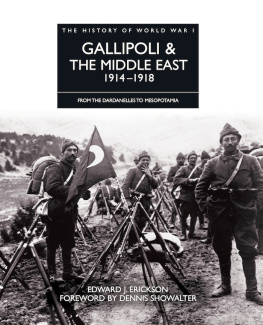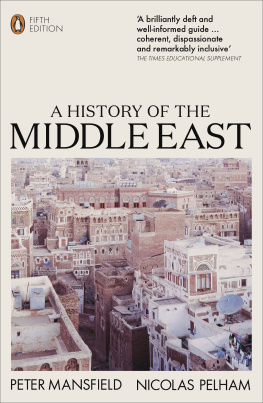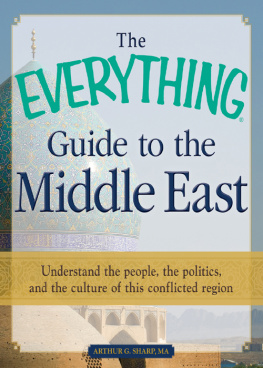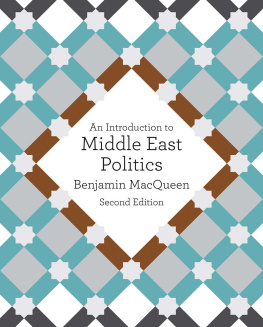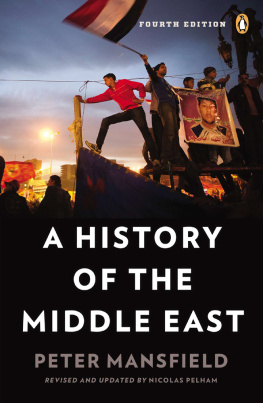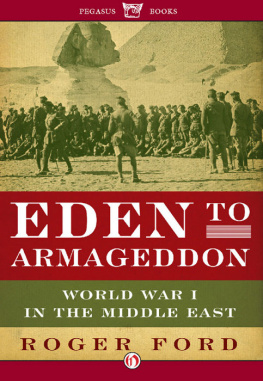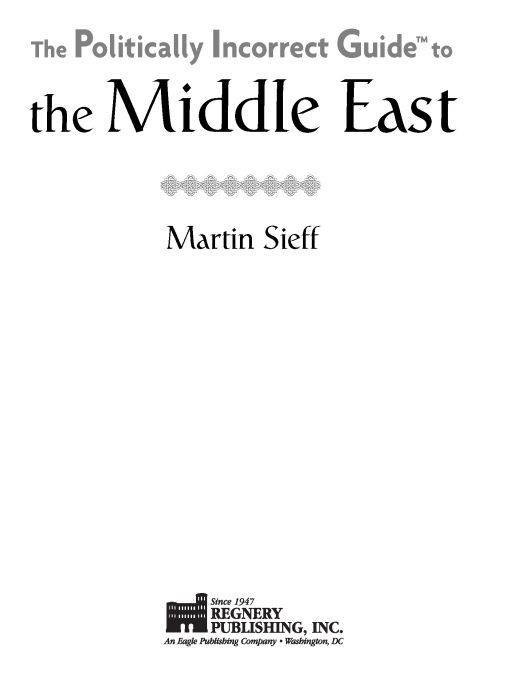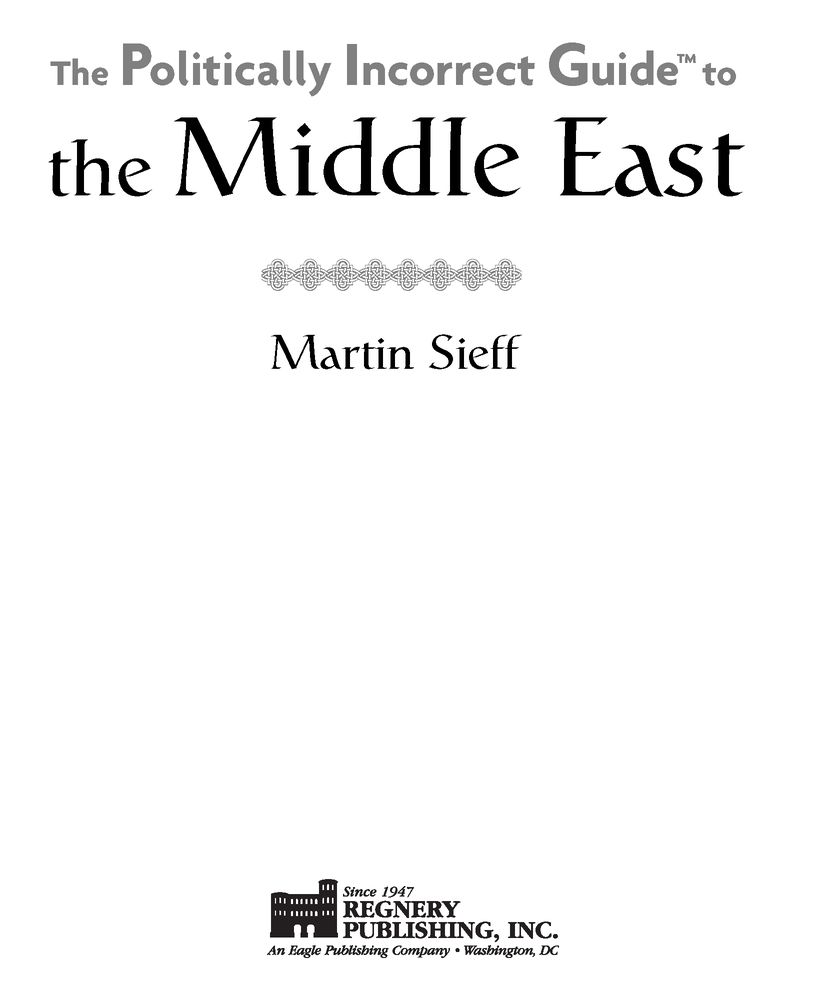Table of Contents
To Debbie Yavelak Sieff
My beloved wife, inspiration, and life partner
who was with me every step of the way, as always.
Thank you, darling.
Introduction
REVEALING THE TRUTH ABOUT THE WORLDS MOST POLITICALLY INCORRECT REGION
The Middle East is the antithesis of every liberal fantasy. And yet probably no region in the world, not even Africa, is so chock-full of virulent, politically correct mythology, distortions, and cover-ups that combine religion, race, the Cold War, Americas enemies, and a history of colonialism.
Its a tricky walk for the mainstream media and Ivy League academics, but somehow they manage to paint religious fundamentalists (the Lefts usual enemies) as the victims, and the regions tiny religious minority (Israels Jewish population) as the oppressors. As always, America is the bad guy, and the terrorists are just desperate freedom fighters. If terrorism and Islamic extremism are a problem, the establishment tells us, its all part of a millennia-old dispute in which both sides are to blame. And, of course, its rooted in that source of all ills: religion.
While the purveyors of political correctness about the Middle East may not be consistent in their arguments, they are at least persistent in their central theme: America and Israel are bad.
Political correctness has also visibly seeped into some minds on the American Rightmost notably in the administration of George W. Bushwho, so ready to buy into the egalitarian PC myths we are all taught, believed that Western-style democracy could flourish anywhere, even in the Middle East. This was to shortchange what an accomplishment Western democracy really is. It fails to realize how hard it is to transplant democracy into a region that has, by and large, rejected not only democracys Judeo-Christian foundations (Japan managed to do that), the extraordinary cultural contributions of ancient Greece and Rome (Japan managed to do that too), but even the very English system of law and government. This system is the fullest expression of modern democracy and was the system of the Middle Easts one-timealbeit short-timecolonial master.
In the Middle East, the cost of PC distortions can be measured in the lives of American soldiers, Iranian dissidents, and Israeli Jews. Pretending theres some sort of moral equivalence between Israeli missile strikes and Palestinian suicide bombers, acting as if our current war is against terror rather than against radical Islam, believing that what might have been a militarily sound policy at one time (toppling Saddam during the first Gulf War when we had the troops in place to do the job thoroughly) would still be a good idea ten years later (on the cheap, with a light force, and wedded to a foreign policy of global democracy)all of these PC delusions weaken the U.S. policy in the Middle East.
In this book, my goal has not been to turn out an academic treatise on the history, culture, and religions of the Middle East. Rather, it has been to reveal the harsh facts about a violent and important region of the world. This book is written as myth-buster. It injects a harsh dose of what Harry Truman called Plain Speaking into a public debate that has been fogged over by the endless noble-sounding lies of media elites and foreign policy experts.
What works, and what doesnt
Peace and stability in the Middle East are crucial to American security and the worlds economy, and so we all need to shed our PC filters to see what has worked in the past and the present to bring calm and order. The answer is not a feel-good canard like addressing the root causes of terrorism, or an idealistic dream like democracy in a region where that has never worked outside the confines of Israel and the military state of Turkey. The answer lies in recognizing the inherently, violently tribal culture of the Islamic Middle East, which is the enemy of all orderunless it is imposed from above with a mailed fist. For centuries that fist belonged to the Ottoman Empire.
Today, it is crucial for our own interests that the mailed fist come not from fundamentalist Iran, and not from us (we havent the resources or the will to do it), and not from Israel (which cannot do it), butwait for itfrom Michael Moores villain, Saudi Arabia. The Saudis are incompetent at their own public relations in the West, but they are the one generally pro-Western regime in the region that can realistically bring stability and suppress the naturally chaotic peoples of the desert, thanks to their wealth, prestige, and ownership of the holiest places in Islam. The Saudis are also Americas longest standing ally in the regioneven longer than Israel. Their harsh, underreported crackdown on terrorism in recent yearsand their desire for a functioning oil economymake them the perfect candidate to replace the Ottoman Empire as the stability-bringing power in the Middle East.
But make no mistake: this book is no apologia for the Saudis either. Nor is it an apologia for Israel. Nor is it an apologia for anyone else in the Middle East, where the old motto very much holds true: the enemy of my enemy is my friend. As a realist, I understand that every country of the Middle East has its own interests and will pursue them. And they are not always interests that you or I will like. But that only underlines why we need to approach the region with clear eyes to see whose interests are most likely to coincide with our own. It is a region I have covered as a reporter for three decades. And as a reporter, I have always concentrated on getting at the truth rather than any politically correct or anodyne fiction.
If you want the hard truth about the Middle East, if you want illusionswhich have captivated more than one White Houseshattered, if youd like to know the truth about these oil- and terrorist-rich lands, then read on. Well take lots of highways and bywaysfor the region is a mosaicbut in the end, the Middle East will reveal itself as the Hobbesian world that it really is, a world of solitary, poor, nasty, and brutish malcontents, enriched beyond the means of avarice by oil and able to plunge the world into catastrophe, unless a firm hand keeps them in place, as the Ottoman Empire once did.
Chapter 1
BRING BACK THE OTTOMAN EMPIRE
The Middle East a century ago
Think of the Middle East at the start of the twenty-first century: home to the richest, highest quality, most easily accessible oil deposits on earth; cockpit of an extreme Islamist movement that wants to topple moderate regimes and wage aggressive war against the United States and the West; nexus of an unending conflict between Israelis and Palestinians; and widely regarded as the most dangerous area for confrontation between the major powers.
The Middle East is filled with unstable states, none of them more than ninety years old, most of them still suffering from crises of legitimacy. Arab nationalism is a volatile force. The regions birth rate is extraordinarily high, and its rate of population increase vastly exceeds those of the nations of the European Union and Russia. The wealthiest and most strategically desirable real estate in the world is the oil-rich land of southern Iraq, Kuwait, the Gulf States, and the Dhahran region of Saudi Arabia.


